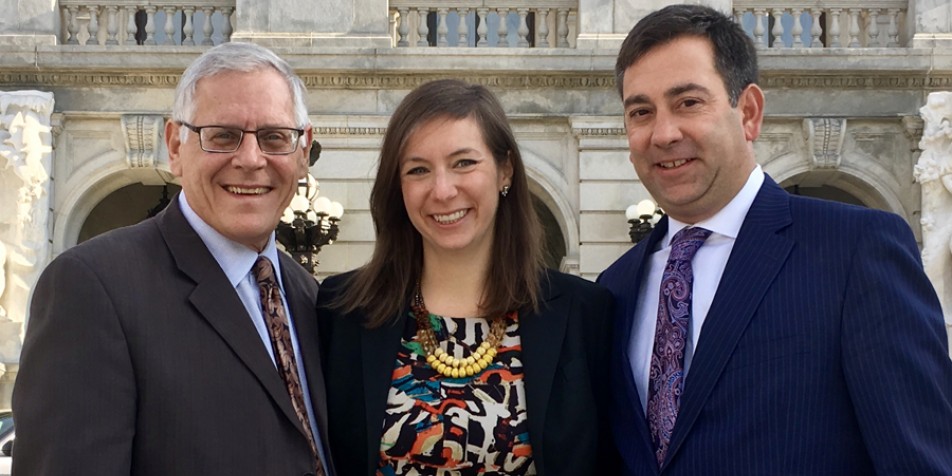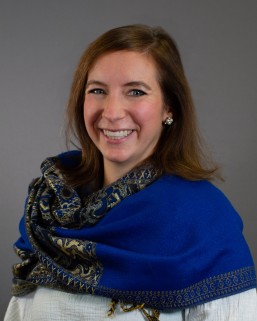“The Way it Happened is B.S.”: How Jordan Brown’s Case Illustrates Systemic Problems in The Justice System

Kate Burdick, Staff Attorney at Juvenile Law Center, is pictured above center with co-counsel Dennis Elisco and Stephen Colafella and worked on Jordan Brown’s case.
On October 19th, ABC 20/20 aired a special episode exposing how Jordan Brown was wrongly accused of murder at age 11 and outlining the nearly decade-long legal battle to clear his name. For the first time, Jordan spoke out about his confusing and trying childhood behind bars.
Juvenile Law Center worked with co-counsel Dennis Elisco and Stephen Colafella through nine years of litigation, including multiple appeals, on Jordan’s behalf. In July 2018, the Pennsylvania Supreme Court overturned Jordan’s delinquency adjudication, bringing a long-awaited conclusion to Jordan’s search for justice.
At the same time, the hardships Jordan endured exemplify deep problems within the justice system that extend far beyond his case. Juvenile Law Center’s advocacy focuses on many of these issues.
We should treat kids as kids.
Even though Jordan was only in fifth grade at the time of the crime, he was charged and initially treated as if he were an adult, facing an automatic life without parole sentence if convicted of murder. In fact, approximately 75,000 kids are processed as adults in the criminal system every year. State laws that allow for this alarming result stem from fear mongering in the 1980s and 90s over a forecasted upsurge in juvenile “superpredators” that never came to pass. Due to individual bias and structural racism such as over-policing communities of color, these laws especially hurt young people who are Black or Latinx. Today, brain science and behavioral research confirm what we all know: kids are different from adults. The U.S. Supreme Court has recognized that youth are less likely to think through their actions and are more capable of change and rehabilitation. We must stop the harmful practice of charging children as adult criminal defendants.
We should serve kids in their own community, where they can maintain family bonds.
Jordan’s father Chris traveled four hours every day to visit Jordan in a detention center. Chris’s support was Jordan’s lifeline for the nine years he fought his case, and it is an outrage that he had to drive over 200 miles round trip to watch his eleven-year-old son grow up. It is all too common for youth to be pulled from their homes and held in an institution—frequently, far away. The latest data from the federal Office of Juvenile Justice and Delinquency Prevention shows over 45,000 youth annually are placed in a residential facility of some kind. Although youth of color and white youth engage in similar behavior, youth of color are far more likely to become incarcerated. Youth who identify as LGBTQ are also over-represented in the system—they are twice as likely to be detained. Separating youth from their homes and communities disrupts helpful supportive networks. And, institutions too often provide a one-size-fits-all approach that is at best ineffective and at worst abusive. Youth frequently endure harsh restraints and solitary confinement, as well as limited or poor educational opportunities. We must close youth prisons and meet youths’ individual needs through community-based services that allow them to maintain contacts with family and neighborhood supports.
Kids deserve prompt appeals.
There were delays in Jordan’s case at every stage of the process. The case began when Jordan was 11 years old and concluded one month before his twenty-first birthday. By the time the Pennsylvania Supreme Court overturned his adjudication, Jordan had already been incarcerated for seven years and on probation for more. Jordan’s childhood was lost because the legal system was so slow. The delays in Jordan’s case were complicated by his initial treatment as an adult, but it is common for young people who are adjudicated delinquent to begin or even complete their sentence (“disposition”) at a residential facility before a court hears the appeal. We must fast-track appeals for youth to safeguard youth’s due process rights and protect against wrongful incarceration, as well as minimize the effects of misleading juvenile records.
Every day across the country, youth like Jordan are wrongly pulled into a broken system, separated from their families, and mistreated. Through reforms like these, we move closer to justice.
